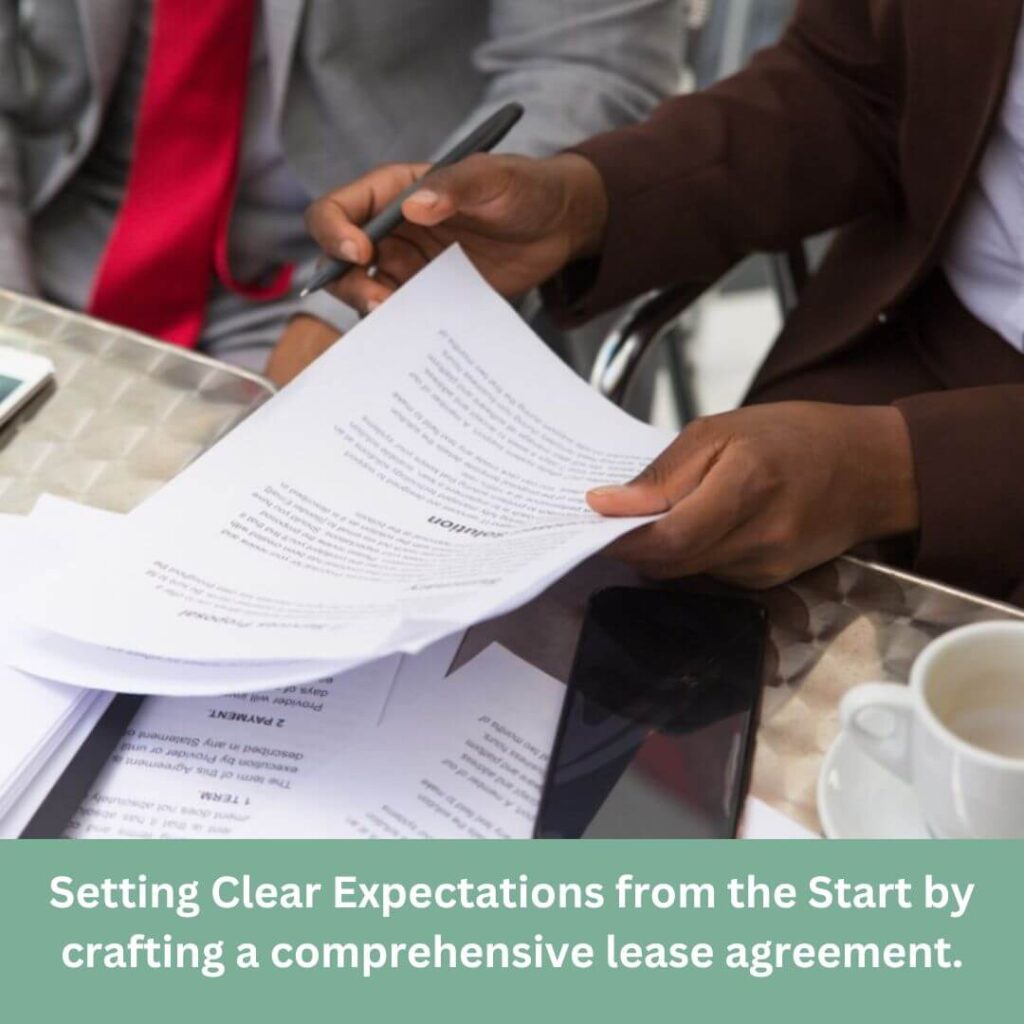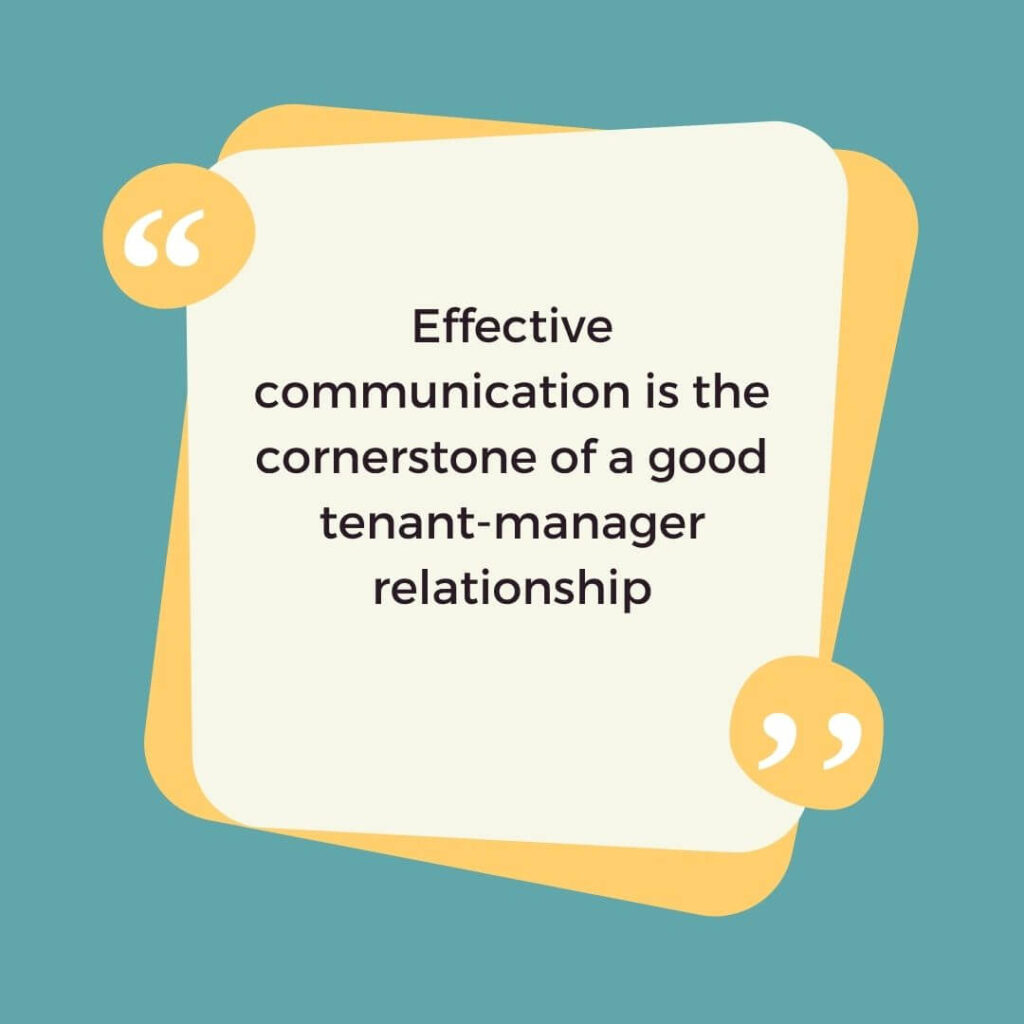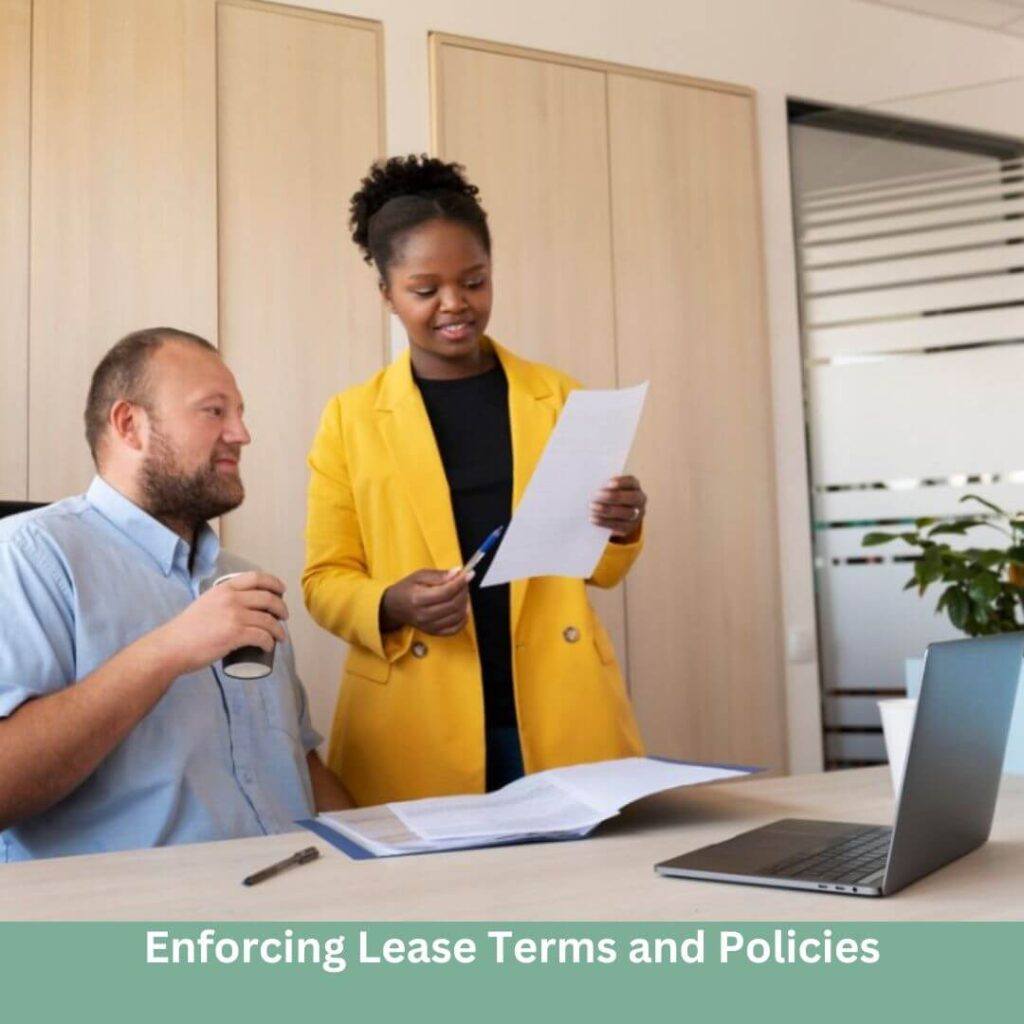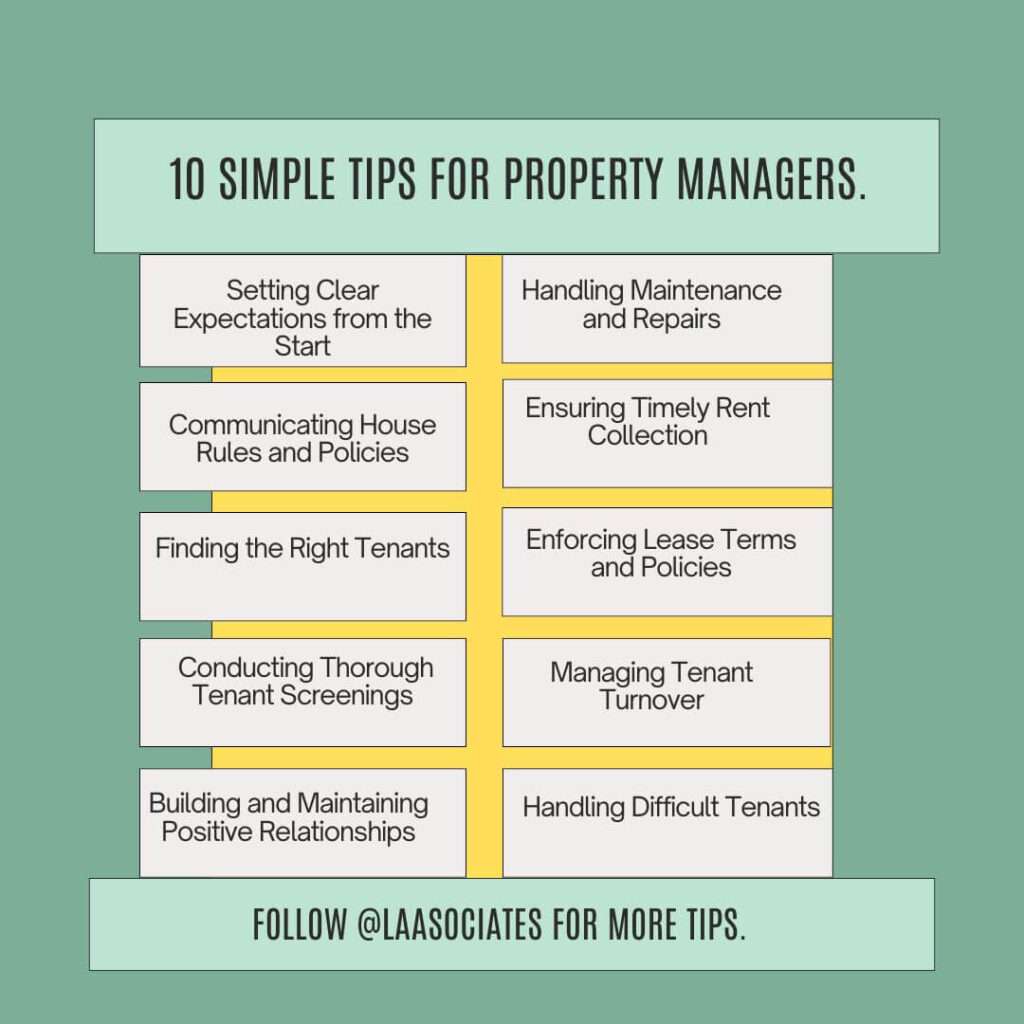Are you experiencing some difficult issues with your tenant lately; You are overwhelmed with their misconduct, and you need an urgent solution. That is why you seek: How do you effectively manage a tenant? Some of the issues you have with your tenant include late payment of rent, which causes a strain on your cash flow; a lack of effective communication with your tenant, which results in misunderstanding and tenant dissatisfaction; frequent maintenance requests and repairs that cost you a lot of money; and property deterioration.
What about tenant turnover, leading to frequent vacancies? You even lack clues on how to handle difficult situations like being non-compliant and the rest, causing stress to you and potential harm to your property and other tenants. These and more affect your relationship with your tenant and need urgent attention.
Guys, I want you to know for a fact that managing your tenant effectively is very important to a property manager if you are aiming for a profitable and stress-free rental business. Successful tenant management not only ensures a steady rental income but also helps in building positive relationships, reducing turnover rates, and maintaining the property in good condition.
In this blog post, I will explore practical tips for property managers on how to effectively manage tenants, from setting expectations to handling difficult situations. You will have various strategies and solutions to deal with all the problems you are currently facing with your tenants. By the time you finish reading this blog post, you will have been equipped with various actionable solutions to make an informed decision on tenant management.
How do you effectively manage a tenant?
You can effectively manage tenants by collecting rent on time, creating a positive rental experience for both tenants and property owners. You must ensure a smooth and hassle-free living environment, reduce turnover rates, minimize conflicts, and ultimately maximize profit with effective communication channels.
Below are 10 tips expertly explained for property managers to guide them in managing their tenants effectively.
1. Setting Clear Expectations from the Start by crafting a comprehensive lease agreement.
As a competent property manager who understands the intricacies of dealing with people day in and day out, part of what you must do is ensure that you set a clear expectation from the beginning of any transaction you are going to have with any of your tenants. How are you going to do this? By crafting a clear, comprehensive, and encompassing lease agreement.
This document would outline all the terms and conditions of the tenancy, including rent amounts, payment due dates, acceptance payment method, security deposit, and the amount and conditions for refund. Property rules govern landlord and tenant responsibilities. Rules and regulations include policies on noise, subletting, and property alteration. Lease terms and renewals, the specific duration of the lease, and any option for renewals. This comprehensive lease agreement will help prevent misunderstandings and provide a legal framework for resolving disputes.

2. Communicating House Rules and Policies
Another tip that will guide you to effectively managing your tenant is communication. It’s essential to communicate any house rules and policies to your tenants upfront. “Before warned, they say, is before harmed.”. Provide new tenants with a welcome package that includes all house rules and contact information. Conduct a brief orientation session to go over the most important rules. Use newsletters or emails to remind tenants of important policies regarding noise restrictions, pets, subletting, or parking regulations. Clear communication from the start will foster a respectful and orderly living environment.

3. Finding the Right Tenants
Get it right from the beginning! finding the right tenants for your property is a clear way to foster effective tenant management. Finding high-quality tenants makes it easier for you to attract good people to your property. You can start with effective marketing strategies. Go for the online listing, and use popular rental websites and social media platforms to place ads for your property.
You’ll reach your target audience and showcase your rental properties’ unique features and amenities by displaying their attractive photos, videos, and detailed descriptions. You can also host open house programs where potential tenants and home buyers are allowed to view the property in person and show interest in renting or buying. Another way is to use referral programs and encourage current tenants to refer friends or family by offering incentives. These strategies can help you reach a wider audience and attract high-quality tenants.
4. Conducting Thorough Tenant Screenings
To complement finding the right tenant, there is a thorough screening. You must thoroughly screen your potential tenants before admitting them to your property. This is a critical step in the rental process, and it helps you select reliable and responsible tenants. It would be best if you took your time to verify all their information, including employment status and history, creditworthiness, and the tenant’s financial stability and history.
Make sure you check any criminal records, past evictions, or rental references. This is to ensure they are reliable and trustworthy individuals who will respect your property and fulfill their obligations as tenants. You can also go as far as contacting previous landlords to get insights into the tenant’s behavior and reliability. A rigorous screening process will help you mitigate the risks of non-compliant tenants and ensure you select tenants who respect your property and adhere to the lease terms and conditions.
5. Building and Maintaining Positive Relationships
One important tip for maintaining effective tenant management is building and maintaining a positive relationship between tenants and property managers or landlords. The vital key to this is an effective communication channel. Open and transparent communication is the key to building and maintaining a positive relationship with your tenants. Be accessible, and encourage them to reach out to you with any concerns or issues.
Provide multiple contact methods and be available during reasonable hours. Keep your tenants informed about any changes or maintenance work. Give them regular updates on things happening around the area. Be a good listener; take time to listen to their concerns and feedback. Good communication fosters trust and helps in quickly addressing any issues that arise.
Related to the above is promptly addressing tenant concerns. Starting from maintenance issues to disputes between tenants. It’s important to address any concerns promptly and professionally. You must aim to respond to tenant inquiries within 24 hours and solve problems efficiently by taking swift action to resolve maintenance issues or disputes. Don’t forget to always do a follow-up on any issue you settle to make sure that the tenants are satisfied. By addressing concerns promptly, you demonstrate your commitment to tenant well-being and property maintenance.

6. Handling Maintenance and Repairs
One of the vital responsibilities of a property manager is the maintenance and repair of the property. To discharge this responsibility, you need to implement a streamlined maintenance request system that can help ensure that maintenance issues are addressed promptly and efficiently. Provide tenants with clear instructions on how to submit maintenance requests and establish a protocol for prioritizing and addressing different types of issues.
You can get this done by using various mediums, like online portals. This is software made for property managers that allow tenants to submit maintenance requests online. A tracking system is another system you can use to track the status of maintenance requests from submission to resolution, and again, you can provide an emergency number for your tenants to contact you for any urgent repairs. Doing this will give you a streamlined maintenance request that will help you quickly address any issues and maintain the property in good condition.
You need to regularly inspect your properties to ensure that you catch up early with any issues. Regular property inspections are essential for identifying any maintenance issues or safety hazards before they escalate into more significant problems.
There are many ways to get that done. First, you can schedule inspections periodically to assess the condition of the property and address any maintenance concerns proactively. Second, you can use a detailed checklist to ensure all aspects of the property are inspected, and lastly, you can use report-finding. This is a document that contains all the inspection results and shares them with the tenant, indicating any necessary repairs or lease violations.
7. Ensuring Timely Rent Collection
To maintain a steady cash flow as a manager, you must have an efficient rent collection process. It’s a sure way to manage your tenets effectively. You need to design a reliable rent collection process that will ensure prompt rent payment and prevent late payment. You need to offer your tenant convenient payment options, such as:
- Automated payment, in which they can set up an automatic payment through online portals.
- There are multiple payment options which include checks, money orders, bank transfers, etc.
- Clear policies where you outline the rent payment process, due dates, and late fees in the lease agreement.
- Dealing with Late Payments and Delinquencies
No matter how many instructions you give, some of your tenants will still violate some procedures. It might not necessarily be intentional, but as a good manager, you must have a plan in place to deal with such occurrences. Such are late payments and delinquencies. You need to have a clear policy in place for handling late payments, including any applicable late fees or penalties, and be prepared to follow through with enforcement if necessary.
You can use the following strategies to combat that:
- Grace period: offer a short time as a grease period before you apply late payment fees.
- Payment plan: Give your tenants who are experiencing financial difficulty the privilege of creating a workable payment plan that will suit their present condition.
- Late fee: your late fees must be a reasonable amount to encourage timely payment
- Use legal action as a last resort to recover unpaid rent.
8. Enforcing Lease Terms and Policies
Human beings are hard to control. If you put any policies in place as a property manager, you must have some strategies to enforce your lease terms and policies. Some of the ways you can do this are:
- Consistent enforcement: You must avoid favoritism and ensure that all rules apply to all the tenants without exception, even if it’s your brother.
- Document violations: keep detailed records of any lease violation and the action taken. This will serve as a reference in the future.
- Communication: communicate the consequences of lease violations without any ambiguity to all your tenants and follow through with them.

9. Managing Tenant Turnover
- Best Practices for Lease Renewals
A good property manager must learn all strategies that will minimize tenant turnover. Whatever it takes, even if it’s by fostering positive relationships with your existing tenants and offering some incentives for lease renewals, just make sure that your existing tenants are not leaving unless they have their own homes.
You can consider the following practices:
- Early communication: contact your tenants 2 months to 3 months’ notice before the lease expires to discuss renewal options.
- Incentives: Offer incentives such as a rent freeze or minor upgrades to encourage renewal.
- Feedback: seek feedback from your tenants on their living experience and address the concern promptly.
- Streamlining the Move-Out Process
When your tenants finally decide to quit the property, ensure that the process is as smooth as possible. Guide them with clear instructions on move-out procedures, conduct a thorough move-out inspection, and return their security deposit promptly. A streamlined move-out process allows a smooth transition for both you and the tenants
Provide a move-out checklist to the tenants detailing the steps they need to take before vacation and conduct a final inspection to assess any damage and determine security deductions. This will allow you to prepare the property for new tenants as quickly and efficiently as possible.
10. Handling Difficult Tenants
- Identifying Common Issues with Tenants
As I said earlier, human beings are difficult to handle. When you are dealing with your tenant, you need to identify the difficult tenants who can pose significant challenges for you. You now have a strategy to deal with them professionally. Some of the issues with difficult tenants may include non-payment of rent, property damage, or disruptive behavior. Identify any red flags early on and take proactive steps to address them before they escalate.
- Conflict Resolution Techniques for Property Managers
When conflicts arise, it’s essential to approach them with patience and professionalism. You have to be a good listener, listen to all parties involved, be calm, and remain neutral and objective. Work towards finding a mutually satisfactory resolution, and seek a compromise that preserves the landlord-tenant relationship.
Managing tenants is a complete task that involves a combination of certain skills, such as communication skills, organizational skills, and so on. So, if you understand the basics of tenant management and the implementation tips outlined in this post, you will create a positive rental experience for your tenants while maximizing the profit and success of rental properties.
If you need effective tenant managers, don’t hesitate to call us on 07057233081
Remember, investing in strong tenant relationships and maintaining open lines of communication are key to long-term success in property management.

Hikmat Olomo is a dedicated real estate enthusiast with a strong foundation in building and construction. Her deep dive into the real estate industry has equipped her with knowledge about market trends, property investment strategies, and home-buying tips. Hikmat’s background in real estate allows her to effectively analyze market data and present it in a way that is both insightful and accessible to her readers. As this blog’s author, she is committed to delivering valuable, up-to-date information to help readers make informed decisions in the ever-changing real estate market.
